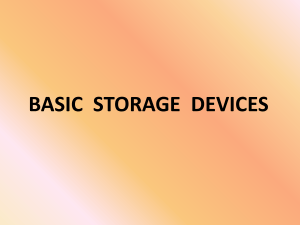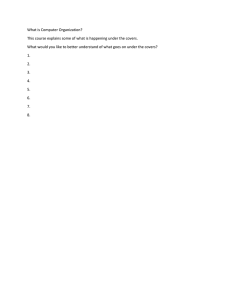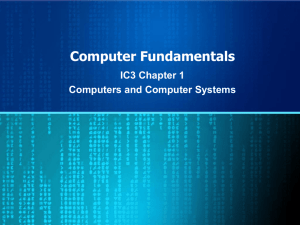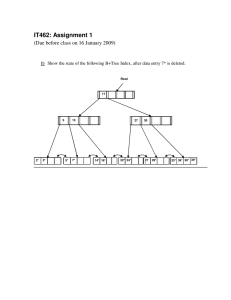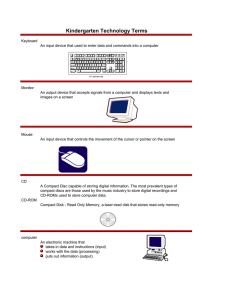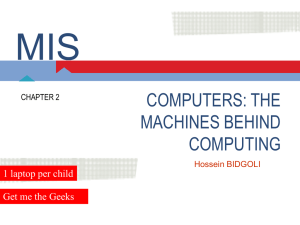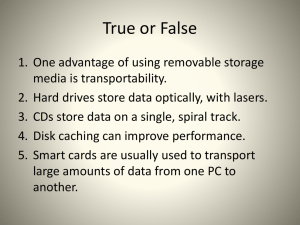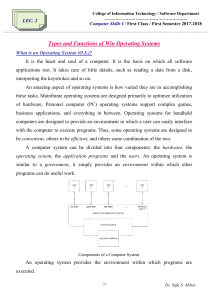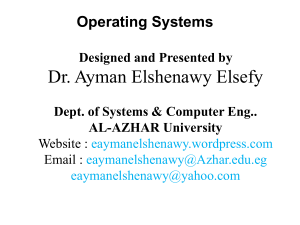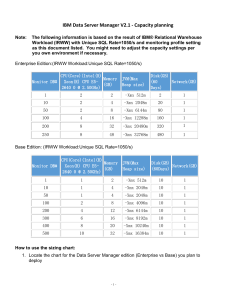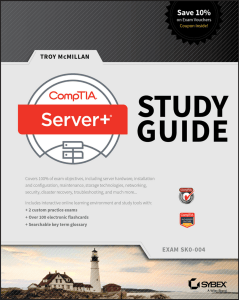Operating System Components: Process, Memory, Storage, I/O, Security
advertisement
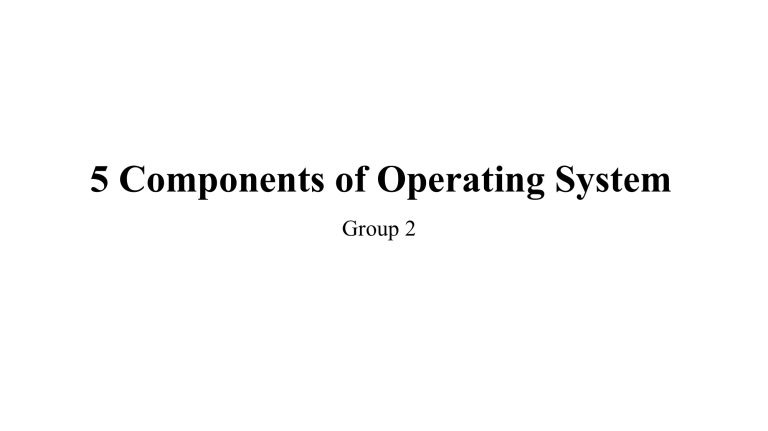
5 Components of Operating System Group 2 Components of Operating System An operating system is a large and complex system that can only be created by partitioning into small parts. These pieces should be a welldefined part of the system, carefully defining inputs, outputs, and functions. The components of an operating system play a key role to make a variety of computer system parts work together. There are the following components of an operating system, such as: 1.Process Management 2.Main Memory Management 3.Secondary Storage Management 4.I/O Device Management 5.Security Management Operating system components help you get the correct computing by detecting CPU and memory hardware errors. Process Management The process management component is a procedure for managing many processes running simultaneously on the operating system. Every running software application program has one or more processes associated with them. The execution of a process must be sequential so, at least one instruction should be executed on behalf of the process. Functions of process management Here are the following functions of process management in the operating system, such as: • • • • Process creation and deletion. Suspension and resumption. Synchronization process Communication process NOTE: OS facilitates an exchange of information between processes executing on the same or different systems. Main Memory management Main memory is a large array of storage or bytes, which has an address. The memory management process is conducted by using a sequence of reads or writes of specific memory addresses. It should be mapped to absolute addresses and loaded inside the memory to execute a program. The selection of a memory management method depends on several factors. However, it is mainly based on the hardware design of the system. Each algorithm requires corresponding hardware support. Main memory offers fast storage that can be accessed directly by the CPU. It is costly and hence has a lower storage capacity. However, for a program to be executed, it must be in the main memory. Main Memory management Functions of Memory management An Operating System performs the following functions for Memory Management in the operating system: • It helps you to keep track of primary memory. • Determine what part of it are in use by whom, what part is not in use. • In a multiprogramming system, the OS decides which process will get memory and how much. • Allocates the memory when a process requests. • It also de-allocates the memory when a process no longer requires or has been terminated. Secondary-Storage Management The most important task of a computer system is to execute programs. These programs help you to access the data from the main memory during execution. This memory of the computer is very small to store all data and programs permanently. The computer system offers secondary storage to back up the main memory. Secondary-Storage Management Today modern computers use hard drives/SSD as the primary storage of both programs and data. However, the secondary storage management also works with storage devices, such as USB flash drives and CD/DVD drives. Programs like assemblers and compilers are stored on the disk until it is loaded into memory, and then use the disk is used as a source and destination for processing. Functions of Secondary storage management Here are some major functions of secondary storage management in the operating system: • Storage allocation • Free space management • Disk scheduling I/O Device Management One of the important use of an operating system that helps to hide the variations of specific hardware devices from the user. Functions of I/O management The I/O management system offers the following functions, such as: • • • • It offers a buffer caching system It provides general device driver code It provides drivers for particular hardware devices. I/O helps you to know the individualities of a specific device. NOTE: The user's program can't execute I/O operations directly. The operating system should provide some medium to perform this. Security Management The various processes in an operating system need to be secured from other activities. Therefore, various mechanisms can ensure those processes that want to operate files, memory CPU, and other hardware resources should have proper authorization from the operating system. Security refers to a mechanism for controlling the access of programs, processes, or users to the resources defined by computer controls to be imposed, together with some means of enforcement. Security Management For example, memory addressing hardware helps to confirm that a process can be executed within its own address space. The time ensures that no process has control of the CPU without renouncing it. Lastly, no process is allowed to do its own I/O to protect, which helps you to keep the integrity of the various peripheral devices. Security can improve reliability by detecting latent errors at the interfaces between component subsystems. Early detection of interface errors can prevent the foulness of a healthy subsystem by a malfunctioning subsystem. An unprotected resource cannot misuse by an unauthorized or incompetent user. Reference: https://www.javatpoint.com/components-of-operating-system https://www.chtips.com/operating-system/components-of-operating-system-incomputer/?fbclid=IwAR2l9yTbPPe7267TXLsSQPzm8j-Oxe2tv8o1M4vqXWSYKiiuOFkpHabVsIM Members: John Vincent Villanueva Sweet Zel De Guzman Jake Ralph Molde Jaren Mae Precones Angelica Iglesia Aubrey Mae Batao Dan Rick Escobido Lance Zeus Mercado Mary Grace Canapit Mikaela Adope
